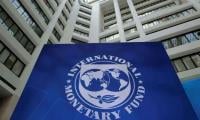PARIS: Nobel Peace Prize winner Kailash Satyarthi on Monday urged European governments to protect the children of their citizens who went to live under the Islamic State group, days after the death of a baby born to a London teenager in a Syrian refugee camp.
Britain’s conservative government has faced criticism from human rights campaigners and leftwing opponents after the two-week-old son of jihadi bride Shamima Begum perished in a camp in northeastern Syria last week.
British Home Secretary Sajid Javid had revoked Begum’s British citizenship in February, a move designed to show the government’s uncompromising stance on those who joined the extremists.
"These children are not jihadis," said Satyarthi, a lifetime Indian campaigner for child rights who won the Nobel Prize in 2014 along with Pakistan’s Malala Yousafzai.
"If we are not able to give them proper care and proper protection and love and respect and recognition as human beings, then there are more chances that they could be misused and manipulated," he told AFP in Paris. "It is better to embrace them."
As IS faces defeat on the battlefield, thousands of women and children have been streaming out of Baghouz, the group’s last redoubt in Syria, which has faced a military onslaught by Kurdish-led forces.
The mass exodus has increased the dilemmas faced by many countries which must decide whether to allow jihadists and IS sympathisers home to face prosecution, and how to deal with their children.
According to UN children’s charity Unicef, around 3,000 foreign children from 43 countries are housed at the Al-Hol camp alone, which has taken in most of the people fleeing the collapsed IS "caliphate" in recent weeks.
"Maybe they are the children of jihadis or suicide bombers or terrorists. They are born into that family, but it is not their fault," Satyarthi added.
Some countries, notably Russia, have repatriated children and placed them with family members or foster parents, but France, Belgium and Britain have been reluctant to bring back their minors.
A lawyer working for the families of French jihadists, Marie Dose, recently accused the Paris government of "leaving them to die".
Satyarthi’s comments are in keeping with the 65-year-old’s drive to promote child rights, firstly through his own charity in India, and since his 2014 Nobel prize as a global campaigner.
He continues to lead his Indian organisation, Bachpan Bachao Andolan, which has been able to scale up operations to save child labourers thanks to his global notoriety.
In a world dominated by bad news, the activist from India’s central Madhya Pradesh state says good news globally for child rights are a bright spot -- but more can be done.
He cites figures showing that in the last 18 years the number of child labourers has fallen to 150 million from 260 million, while the number of children not in primary school has more than halved to 60 million.
"Progress has been made, but neither the Indian government nor the international community has yet prioritised the issues of children," he said.
"In many places of the world, we have more soldiers than teachers, more weapons and guns than books and toys for our children."
Satyarthi expressed disappointment with the record on child rights of India’s Hindu nationalist Prime Minister Narendra Modi, who will be seeking re-election at elections scheduled from April 11 to May 19.
More public spending on education, health and child protection was needed, as well as a new law on child trafficking which has been stuck in the upper house of parliament, he said.
"Everyone is proud that we have such a huge demographic dividend (in India): 40 percent of the population below 18 years old. But what do you spend on them?" he asked.
As well as continuing his core child rights and rescue work, Satyarthi has recently broadened his focus to take in the battle against online pornography, which he views as a major threat to children.
He has toured world capitals trying to drum up support for a new global UN convention to tackle the problem of child and adult pornography being viewed by minors. "There is a whole dark side of the internet that has to be stopped and that is not possible without a strong law, an international law," he said.
The World Meteorological Organisation flag. — AFP FileGENEVA: Global temperatures hit record highs last year, and...
This image shows the outside view of the U.S. Senate. — AFP/FileWASHINGTON: Billions of dollars in foreign aid for...
Each year, many African migrants brave the perilous “Eastern Route” across the Red Sea and through war-scarred...
State Department US building can be seen in this picture. — AFP/FileWASHINGTON: The U.S. State Department’s annual...
Former US president Donald Trump. — AFP/FileNEW YORK: The judge overseeing Donald Trump’s criminal hush money...
Abortion-rights activists hold a protest on in Phoenix, USA. — AFP/File WASHINGTON: The idea of a doctor in the...







